Athlete Coach

Is it necessary to hire a personal coach to improve sports skills ?
Improving sports skills is a common goal for many athletes, from amateur enthusiasts to professional competitors. One question that often arises is whether it is necessary to hire a personal coach to achieve this objective. In this response, we will explore the advantages and disadvantages of hiring a personal coach and provide some recommendations based on individual needs and circumstances. Advantages of Hiring a Personal Coach: Expertise and Experience: A personal coach brings expertise and experience to the table. They have spent years honing their craft and learning the intricacies of their sport. This knowledge can be invaluable when it comes to improving an athlete's technique, form, and overall performance. Customized Training Plans: Personal coaches create customized training plans tailored to each athlete's specific needs, goals, and abilities. This personalized approach ensures that the athlete is receiving the most effective and efficient training possible, which can lead to faster progress and better results. Accountability and Motivation: Having a personal coach provides a sense of accountability and motivation. The coach serves as a mentor and cheerleader, pushing the athlete to reach their full potential while also providing support and encouragement along the way. Injury Prevention and Recovery: Personal coaches are trained in injury prevention and recovery techniques. They can help athletes identify potential risk factors and develop strategies to minimize the likelihood of injuries occurring. Additionally, they can guide athletes through proper recovery protocols after workouts or competitions. Disadvantages of Hiring a Personal Coach: Cost: Hiring a personal coach can be expensive, particularly for top-level coaches with extensive experience and credentials. This cost may not be feasible for all athletes or may require significant financial investment over time. Availability and Accessibility: Personal coaches may not always be available at convenient times or locations for the athlete. This can make it difficult to maintain consistent training schedules or receive timely feedback and guidance. Compatibility Issues: Not all athletes will click with their personal coach, leading to compatibility issues that can hinder progress and enjoyment of the sport. It is important to find a coach who understands the athlete's goals, personality, and learning style. Recommendations Based on Individual Needs and Circumstances: Assess Your Goals and Level of Commitment: Before deciding whether to hire a personal coach, assess your goals and level of commitment to your sport. If you are serious about improving your skills and achieving specific milestones, investing in a personal coach may be worth considering. However, if you are primarily focused on recreational activities or occasional competitions, self-directed training may be sufficient. Consider Your Budget and Resources: Evaluate your budget and resources to determine if hiring a personal coach is financially viable for you. There may be alternative options such as group coaching sessions, online coaching programs, or working with less experienced coaches that offer similar benefits at a lower cost. Research Potential Coaches Carefully: If you decide to pursue hiring a personal coach, research potential candidates carefully. Look for coaches with relevant qualifications, experience working with athletes at your level, and positive reviews from previous clients. Schedule initial consultations to gauge compatibility and discuss your goals and expectations. In conclusion, hiring a personal coach can be beneficial for athletes looking to improve their sports skills by providing expertise, customized training plans, accountability, motivation, injury prevention, and recovery support. However, it is essential to consider individual needs, goals, budget, and resources before making this decision. By carefully evaluating these factors and researching potential coaches, athletes can make informed decisions about whether hiring a personal coach is necessary for them.

What are the best sports careers for someone who loves competition ?
Competitive individuals have various sports career options, including professional athlete, coach/manager, sports analyst/journalist, referee/umpire, personal trainer/fitness instructor, sports agent/manager, and event planner/promoter. Each path offers unique opportunities to thrive on competition and excel in the sporting world.

Is it necessary to hire a professional coach to create an effective sports training program ?
The text discusses the necessity of hiring a professional coach for creating an effective sports training program. It outlines the advantages of having a coach, including personalized plans, expertise, motivation, and injury prevention. The article also suggests that hiring a coach is not always necessary but can be beneficial in certain situations, such as for beginners or highly competitive athletes. Ultimately, the decision to hire a coach depends on individual needs and goals.
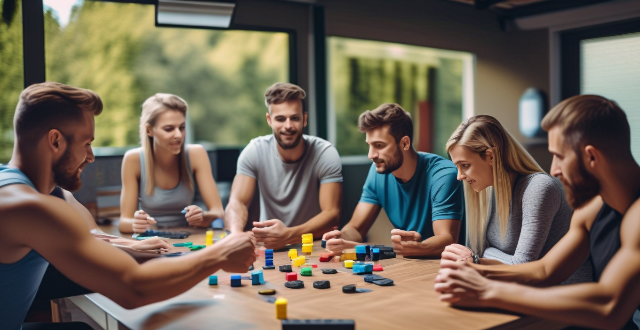
What are the key skills required to become a successful sports coach ?
To become a successful sports coach, one needs to possess strong communication skills, leadership abilities, tactical and strategic thinking, knowledge of sport and fitness training, patience and empathy, motivation and influence, organizational skills, and commitment to continuous learning. These skills help coaches communicate effectively with their athletes, manage team dynamics, strategize game plans, create effective workout routines, build an inclusive environment, motivate athletes towards success, and stay updated with the latest advancements in sports science. By developing these key skills, coaches can inspire their teams to reach new heights and enjoy success in their respective sports.

Can I get a personal coach at a tennis training camp ?
Tennis training camps offer various services, including group lessons, individual lessons, and personalized coaching. Having a personal coach at a tennis training camp can provide you with many benefits, such as personalized attention, customized training plans, accelerated learning, and motivation. To find a suitable coach, research the camp, contact them directly, ask for recommendations, schedule a meeting, and consider the cost. With the right coach, you can take your game to the next level and achieve your tennis goals.

How important is a golf coach in learning the sport ?
**The Importance of a Golf Coach in Learning the Sport** Learning golf, like any sport, requires dedication, practice, and guidance. One of the most crucial aspects of learning golf is having a good coach. A golf coach plays a significant role in shaping a player's skills, understanding of the game, and overall development. In this response, we will explore the importance of a golf coach in learning the sport. ### **1. Providing Expertise and Knowledge** A golf coach brings years of experience and knowledge to the table. They have a deep understanding of the mechanics of the game, including swing techniques, club selection, and course management. This expertise allows them to provide personalized instruction tailored to each player's needs, helping them improve their skills faster and more efficiently. #### **Key Points:** - Understanding swing mechanics - Club selection advice - Course management strategies ### **2. Identifying and Correcting Mistakes** One of the biggest challenges for beginners is identifying and correcting mistakes in their technique or approach. A golf coach can quickly spot these errors and provide targeted feedback and corrections. This not only helps players avoid developing bad habits but also speeds up their learning process. #### **Key Points:** - Identifying technical flaws - Providing targeted feedback - Preventing the development of bad habits ### **3. Motivation and Accountability** Learning any sport can be frustrating at times, and golf is no exception. A golf coach serves as a source of motivation, pushing players to reach their potential and overcome obstacles. Additionally, having someone to be accountable to can increase a player's commitment to their practice routine and overall improvement. #### **Key Points:** - Providing motivation during challenging times - Encouraging perseverance and resilience - Holding players accountable for their progress ### **4. Customized Training Plans** Every golfer has different strengths, weaknesses, and goals. A golf coach can create customized training plans that cater to each individual's needs, ensuring they focus on areas that need improvement while reinforcing their strengths. This personalized approach leads to more effective training sessions and better overall results. #### **Key Points:** - Tailored training plans based on individual needs - Focusing on areas for improvement - Reinforcing strengths for optimal performance ### **5. Access to Resources and Networking Opportunities** Golf coaches often have access to resources such as training facilities, equipment, and networking opportunities within the golf community. These resources can be invaluable for players looking to take their game to the next level. From connecting with other professionals to gaining access to advanced training tools, a coach's network can significantly impact a player's development. #### **Key Points:** - Access to quality training facilities and equipment - Networking opportunities within the golf community - Connections with other professionals for mentorship and guidance In conclusion, having a golf coach is essential for anyone looking to learn and excel in the sport of golf. From providing expert knowledge and personalized instruction to offering motivation and access to valuable resources, a golf coach plays a critical role in a player's journey towards mastering the game.

How do different coaching styles impact the development of high-level athletes ?
This text discusses the impact of coaching styles on high-level athlete development. It highlights different coaching styles such as autocratic, democratic, visionary, servant leadership, and transformational, discussing their advantages and disadvantages in the context of athlete development. The text emphasizes that effective coaching approaches often depend on the specific needs of athletes and team goals. Coaches should consider adapting their style based on feedback from their athletes to ensure continuous improvement and success.

How can a coach improve their leadership skills in sports ?
To improve their leadership skills in sports, coaches should develop emotional intelligence, build trust and respect with athletes, set clear goals and expectations, provide constructive feedback, encourage teamwork and collaboration, and continuously learn and grow. These strategies can help coaches guide their teams towards success by fostering a positive team culture, motivating athletes, and promoting effective communication and collaboration within the team.
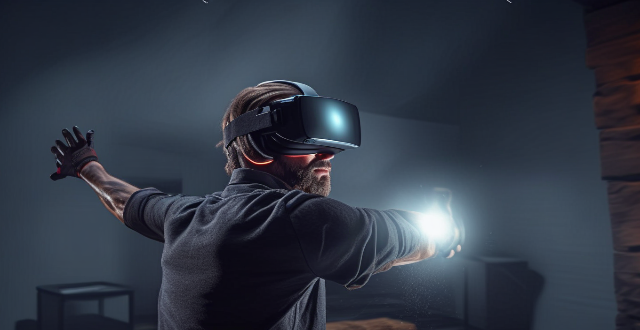
Can virtual reality training improve athlete skills ?
Virtual reality (VR) technology has been increasingly utilized in sports training, raising the question of whether it can improve athlete skills. The answer depends on several factors, including the type of sport and specific skills required. VR platforms offer a novel medium to develop cognitive skills such as concentration and alternating attention. They can be highly beneficial for sports requiring precision and accuracy, providing a controlled environment for repeated practice and immediate feedback. However, VR should not replace traditional physical training entirely but be used as a supplementary tool. Additionally, VR can help athletes mentally prepare for competition by simulating game scenarios and practicing decision-making skills under pressure. The effectiveness of VR training depends on various factors, and its evolution in sports training programs will be interesting to observe as technology advances.
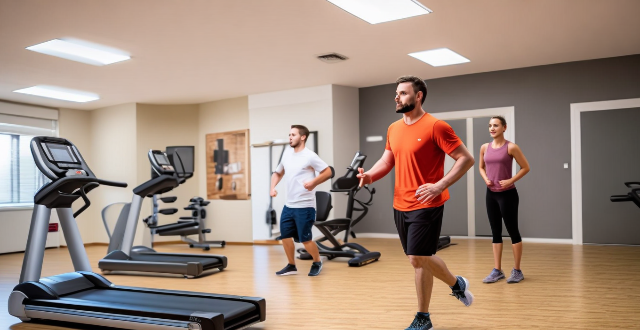
Can AI improve sports performance and athlete safety ?
Artificial Intelligence (AI) is transforming the sports industry by enhancing athletic performance and ensuring athlete safety through personalized gear design, optimized nutrition and training schedules, and injury prevention. AI's predictive capabilities help in preemptive measures against injuries, while wearable technology provides real-time data for monitoring an athlete's physical state. The future of AI in sports holds immense potential for real-time feedback, strategy adjustments, and fair play enforcement.
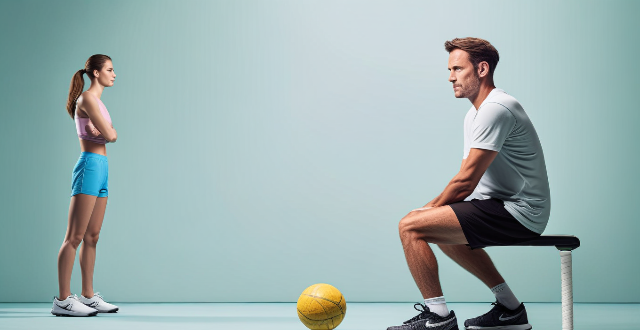
What is the difference between a personal trainer and a sports coach ?
This article compares and contrasts the professions of personal trainers and sports coaches, highlighting their similarities and differences in terms of clientele, goals, training programs, feedback and guidance, and areas of specialization. Personal trainers work with individuals to improve their overall health and fitness levels, while sports coaches work with athletes or teams to improve their performance in a specific sport. The article provides a comprehensive overview of the key differences between these two professions, helping readers understand the unique roles and responsibilities of each.

How do high-tech training facilities contribute to athlete development and recovery ?
High-tech training facilities contribute to athlete development and recovery by providing advanced equipment, technologies, and personalized programs. These resources help improve performance, prevent injuries, and facilitate efficient recovery.
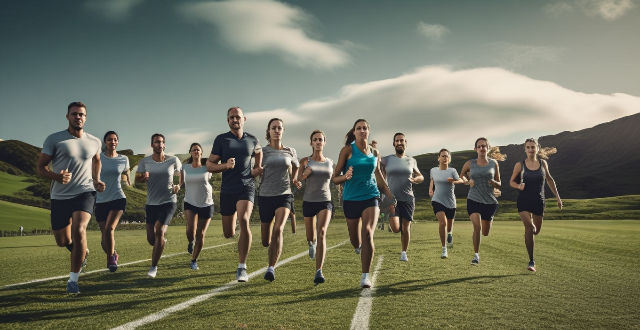
How important is hands-on experience when applying for sports coaching jobs ?
Hands-on experience is crucial for success in sports coaching jobs, providing practical knowledge and skills for effective athlete training and team leadership. It also helps coaches build strong relationships with athletes, demonstrate essential skills to potential employers, and engage in continuous learning for ongoing development. Employers are more likely to hire candidates who can demonstrate these skills through their previous experiences.

What is the role of biometric monitoring in athlete health and fitness ?
Biometric monitoring is a valuable tool for athletes to optimize their performance, recovery, and overall well-being. By collecting and analyzing data related to an individual's physical characteristics, such as heart rate, skin temperature, and body composition, athletes can gain insights into areas where they may need improvement or make adjustments to their training regimen. Biometric monitoring can also help athletes monitor their recovery from workouts and competitions, optimize their training regimens, prevent injuries, and enhance their overall well-being. Overall, biometric monitoring plays a crucial role in athlete health and fitness by providing valuable insights into performance, recovery, training regimens, injury prevention, and overall well-being.
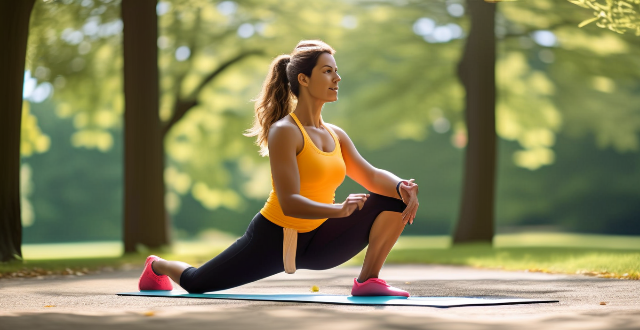
What is the best way to structure a training program for a beginner athlete ?
As an AI assistant, I can provide general guidelines and tips on how to structure a training program for a beginner athlete. Before starting any training program, it is important to set clear goals and objectives. Every training session should start with a warm-up and end with a cool-down period. Strength training should be a key component of any beginner athlete's training program. Cardiovascular training is essential for improving endurance, burning calories, and enhancing overall health. Flexibility and mobility are often overlooked but are crucial for preventing injury, improving performance, and maintaining good posture. Recovery and rest are equally important as training itself. By following these guidelines and seeking guidance from qualified coaches or trainers, beginner athletes can safely and effectively improve their fitness levels and achieve their desired outcomes.

Can sport monitoring technology help prevent injuries ?
Sport monitoring technology has become increasingly popular in recent years, with many athletes and coaches using it to improve performance and prevent injuries. This technology includes wearable devices such as fitness trackers, heart rate monitors, and GPS tracking systems, as well as more advanced technologies like motion capture systems and force plates. Sport monitoring technology works by collecting data on an athlete's movements, heart rate, and other physiological factors. This data is then analyzed to provide insights into the athlete's performance and identify areas where they may be at risk of injury. By tracking an athlete's movements and physiological factors, sport monitoring technology can identify potential injury risk factors early on, help coaches create personalized training plans for each athlete based on their individual needs and abilities, monitor recovery periods between sessions, and educate athletes and coaches about injury prevention strategies. Overall, there is evidence to suggest that sport monitoring technology can help prevent injuries in several ways. However, it is important to note that no technology can completely eliminate the risk of injury, and proper training, conditioning, and safety measures should always be prioritized.

What are some common challenges faced by new sports coaches ?
Becoming a new sports coach can be an exciting and rewarding experience, but it also comes with its own set of challenges. Here are some common challenges faced by new sports coaches: 1. Establishing Authority and Respect: Gaining the respect and trust of your athletes is crucial to your success as a new coach. This can be challenging, especially if you are young or inexperienced. You may need to work harder to establish your authority and earn the respect of your team. 2. Developing Effective Communication Skills: Effective communication is key to being a successful coach. As a new coach, you may struggle to communicate effectively with your athletes, parents, and other coaches. You will need to work on your ability to give clear instructions, provide feedback, and listen actively to your athletes' needs and concerns. 3. Building Team Chemistry: Building a strong team culture and chemistry takes time and effort. As a new coach, you may find it challenging to create a sense of unity and cohesion among your athletes. You will need to focus on building relationships, fostering a positive team environment, and promoting a culture of inclusivity and support. 4. Managing Time and Prioritizing Tasks: As a new coach, managing your time effectively can be a challenge. You will need to prioritize tasks such as game preparation, practice planning, player development, and administrative duties. Learning to delegate responsibilities and manage your time wisely is essential for success. 5. Dealing with Adversity: Coaching is not always smooth sailing. As a new coach, you may face adversity such as losing games, dealing with injuries, or handling conflicts within the team. It is important to develop resilience and learn how to handle difficult situations calmly and constructively. 6. Continuing Education and Development: As a new coach, there is always room for growth and improvement. You should strive to continue learning about coaching techniques, sports psychology, fitness training, and other relevant topics. Attending coaching clinics, workshops, and conferences can help you stay up-to-date with the latest trends and best practices in sports coaching.
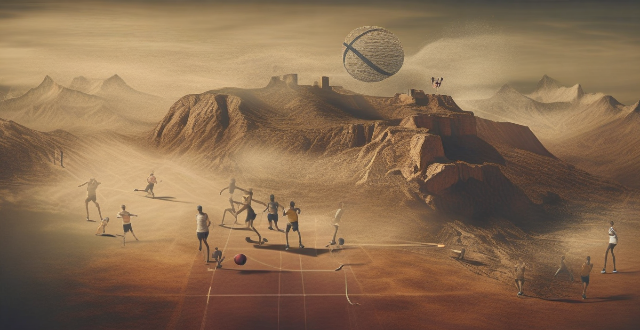
How do athletes balance their commitment to their sport with their religious obligations ?
Athletes can balance their commitment to their sport with their religious obligations by prioritizing, managing time effectively, communicating with others, being flexible, and having a support system.

How much do sports coaches earn on average ?
The article discusses the factors affecting sports coaches' salaries, including the level of competition, the sport, and the location. It also provides average salary ranges for professional, college, high school sports coaches, and personal trainers/fitness coaches. Finally, it suggests ways to increase earnings as a sports coach, such as gaining more experience, specializing in a niche area, or starting your own business.

How often should sports coaches update their training knowledge and techniques ?
Sports coaches should regularly update their training knowledge and techniques to improve athlete performance, prevent injuries, stay competitive, and retain athletes. The frequency of updates depends on factors such as sport specifics, level of competition, and personal growth. Recommended methods for staying updated include attending workshops, reading books and articles, watching videos and webinars, collaborating with other coaches, participating in online courses, and practicing new techniques. Ideally, coaches should aim to update their knowledge multiple times per year.

What role does communication play in sports leadership ?
Communication is vital for sports leadership, helping achieveCommunication is vital for sports leadership, helping achievehesion, and foster a helping achieve success, build team cohesion, and foster a positive environment. Clear and concise messaging, active listening, encouragement, and motivation are key components of effective communication in sports leadership. Benefits of effective communication include increased performance, improved team cohesion, enhanced athlete development, and greater satisfaction and retention.

How do motion tracking devices integrate with sports uniforms ?
Integration of motion tracking devices with sports uniforms can provide real-time data on an athlete's movements, such as speed, acceleration, and direction. This integration can be achieved through wearable tech, embedded sensors, or smart textiles. The benefits of this integration include improved performance analysis, injury prevention, and better athlete management.
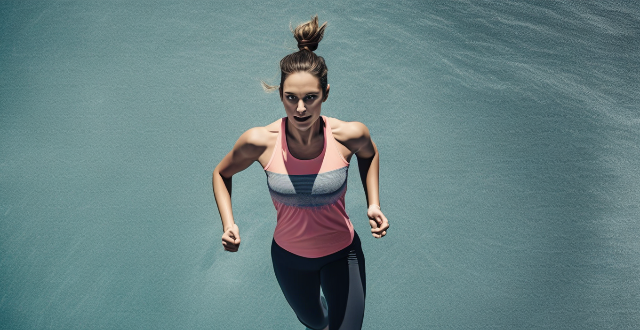
How does AI technology help with injury prevention in sports ?
AI technology is revolutionizing sports injury prevention by providing valuable insights into an athlete's physical condition, performance, and risk factors. Through data analysis, real-time monitoring, biomechanical analysis, recovery support, and injury surveillance, AI technology helps coaches, athletes, and medical professionals take proactive steps to prevent injuries and promote safer sports environments.

How does sports psychology help in managing pre-game anxiety and nervousness ?
Pre-game anxiety and nervousness are common experiences for athletes, but sports psychology offers strategies to manage these emotions effectively. These include goal setting, relaxation techniques, cognitive restructuring, establishing routines, practicing mindfulness, and leveraging social support. By implementing these tools, athletes can enhance their mental resilience and perform at their best when it matters most.

What are some of the most memorable moments in sports movies ?
Sports movies often showcase the triumphs and struggles of athletes, capturing our hearts and inspiring us to be our best selves. Here are some of the most memorable moments in sports movies: 1. The Miracle on Ice (Miracle, 2004) - Herb Brooks coaching the 1980 U.S. men's Olympic hockey team to victory over the Soviet Union during the Cold War. 2. Rocky Balboa's Victory (Rocky, 1976) - Sylvester Stallone stars as an underdog boxer who gets a chance to fight for the world heavyweight championship. 3. The Blind Side (The Blind Side, 2009) - Sandra Bullock stars as Leigh Anne Tuohy, who adopts Michael Oher, a homeless teenager with a troubled past, and helps him become a successful football player. 4. Remember the Titans (Remember the Titans, 2000) - Denzel Washington stars as Herman Boone, an African American coach tasked with integrating a newly formed high school football team in Virginia during the civil rights era. 5. Hoosiers (Hoosiers, 1986) - Gene Hackman stars as Norman Dale, a basketball coach who takes on the challenge of leading a small-town Indiana high school team to victory in the state championship.
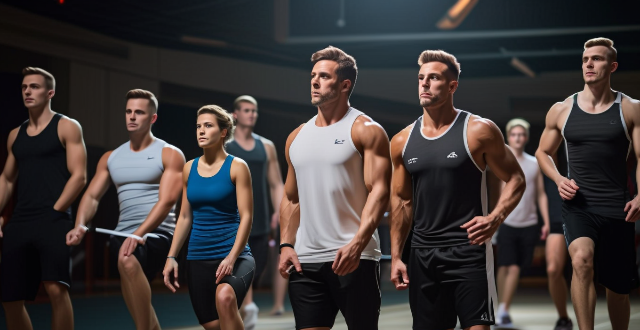
How does sports psychology differentiate between elite and average performers ?
In sports psychology, elite athletes are distinguished from their average counterparts by a combination of psychological traits, physiological factors, and environmental influences. Key differences include mental toughness, self-confidence, focus, emotional regulation, motivation, and the quality of support systems. Elite performers typically exhibit superior resilience, set ambitious goals, maintain better concentration, manage emotions effectively, possess intrinsic motivation, and train in environments that foster excellence. In contrast, average performers may struggle with these aspects, leading to suboptimal performance. Understanding these distinctions can help coaches, athletes, and sports psychologists develop strategies for improvement and success.

How do sports psychologists help athletes deal with performance anxiety ?
Sports psychologists use various techniques to help athletes manage performance anxiety, including assessment and goal setting, cognitive behavioral techniques, building mental toughness, establishing routines, fostering social support, and ongoing assessment. These strategies aim to enhance an athlete's mental resilience and enable them to perform optimally under pressure.

How do smart fabrics work in sports clothing ?
Smart fabrics in sports clothing incorporate conductive threads and sensors to monitor movements, vital signs, and environmental factors. They provide real-time feedback for performance enhancement and injury prevention. Features like thermoregulation and self-cleaning improve comfort and durability. Integration with devices allows for a seamless user experience, while customization options offer personalized fits and designs.

How can technology help in designing and monitoring a sports training plan ?
Technology has revolutionized sports training, allowingTechnology has revolutionized sports training, allowing workout programs through wearable devices allowing for more personalized and efficient workout programs through wearable devices, data analytics, and virtual training environments. It aids in designing training plans by collecting performance data, tracking movement patterns, simulating game scenarios, and customizing regimens based on individual needs. Technology also enhances monitoring progress with real-time feedback, recovery management tools, and adaptive goal setting features. These advancements provide valuable insights that traditional methods cannot match, shaping the way athletes reach their peak performance.

How accurate is sports technology analysis ?
Sports technology analysis has become increasingly popular in recent years, with the development of advanced technologies such as sensors, wearable devices, and machine learning algorithms. These technologies are used to collect and analyze data from athletes' performance during training and competitions, providing valuable insights into their physical condition, technique, and strategy. However, the accuracy of sports technology analysis is a topic of debate among experts. In this article, we will explore the factors that affect the accuracy of sports technology analysis and discuss its limitations.